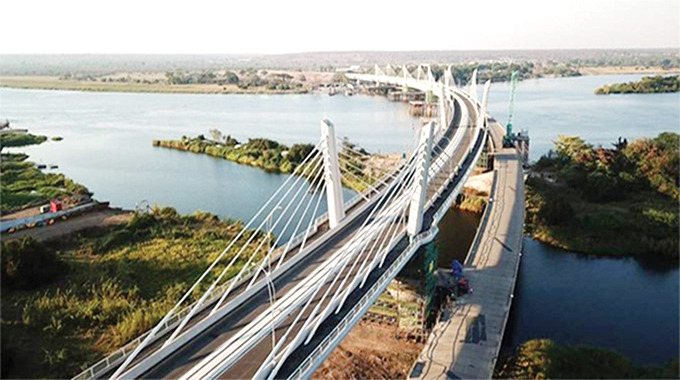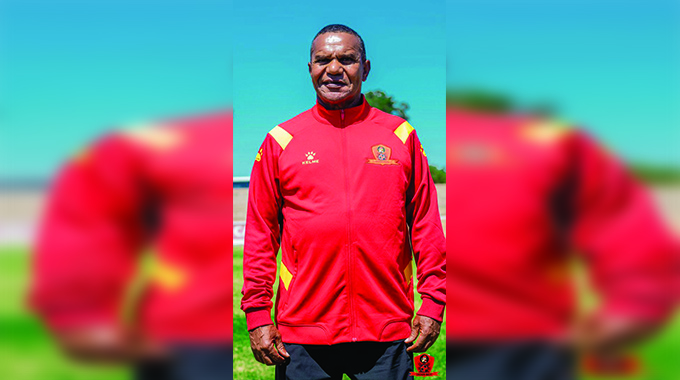Sadc discusses challenges contributing to limited achievements of development targets

The 2023/24 Infrastructure Performance Review and Planning Session took place in Kasane, Botswana from 16 to 22 March 2024, under the auspices of the Directorate of Infrastructure, which operates within the Secretariat of the Southern African Development Community (Sadc).
The annual session serves as a platform for reflection, performance assessment, and future planning. This year’s session was held under the theme; “Accelerating the implementation of the Sadc Regional Infrastructure Development Master Plan (RIDMP) 2027 and Sadc Regional Indicative Strategic Development Plan (RISDP 2020-2030).
The planning session aligns with Pillar II of the Sadc RISDP 2020-2030 and Sadc Vision 2050, emphasising the importance of infrastructure development to support regional integration and the provision of seamless and high-quality infrastructure and networks.
This includes the development of cross-border infrastructure such as transportation, energy, water and sanitation, ICT, and meteorology, which play a crucial role in facilitating the movement of people, goods, services, and knowledge.
The planning session aimed to strengthen national and regional linkages, foster collaboration and partnership between stakeholders, and enhance service delivery of the regional infrastructure projects.
The session also evaluated progress made in prioritised infrastructure activities, reflected on challenges encountered, and strategised collectively on how best to advance Sadc Infrastructure as a strategic enabler to regional integration and economic prosperity.
Ms Angele Makombo N’tumba, the Sadc Deputy Executive Secretary for Regional Integration, commended implementing agencies and International Cooperation Partners (ICPs) for their significant presence, demonstrating their commitment to collaborating with the Sadc Secretariat in developing interventions and policies, which aim to facilitate regulatory procedures and foster a favourable environment for investment in the infrastructure sector.
Ms Makombo N’tumba emphasised the importance of bolstering climate services to mitigate the adverse effects of climate-related disasters, which have regrettably hindered the economic progress achieved by Member States.

Ms Makombo N’tumba particularly highlighted the need for an enhanced early warning mechanism, as well as improved emergency communication capabilities and preparedness to mitigate natural disasters.
Furthermore, she drew attention to the challenge presented by acute power blackouts and electricity shortages in the Sadc region. Ms Makombo N’tumba encouraged the development of new propositions that address the deficit in power supply and promote greater access to sustainable and affordable energy.
She also highlighted that this can be achieved through the intensified utilisation of renewable and alternative energy sources including hydro power, solar, wind as well as low carbon forms of energy such as natural gas and nuclear power.
Similarly, universal access to energy should be accelerated through different technologies and approaches such as grid extension, mini grids, and stand-alone systems.
In regard to other essential infrastructure components, she strongly urged all relevant stakeholders to expedite the implementation of transport corridor development and the establishment of strategic roadmaps, as well as the adoption of digital technologies to facilitate universal digital connectivity.
Additionally, she emphasised the necessity for enhanced management of water infrastructure and treatment facilities, to ensure the consistent availability of water for agricultural, industrial, and domestic purposes.
Dr Judith Kateera, Sadc Deputy Executive Secretary for Corporate Affairs delivered a presentation on long-term infrastructure funding for Sadc priority projects. She shared valuable insights and provided expert guidance on financing infrastructure projects with a focus on prioritised initiatives.
Dr Kateera emphasised the importance of effectively harnessing global financial resources for infrastructure and human capital development. She stressed the need to explore equity finance options, mitigate investment risks, and formulate innovative financial mechanisms that can mobilise the necessary resources.
Furthermore, Dr Kateera underlined the significance of forging partnerships with funders who can guarantee support for commercially viable and bankable projects in the Sadc region.

Dr Judith Kateera
She underscored the strategic use of prudent infrastructure financing strategies, capital liquidity leverage, and collaboration with the private sector in achieving the desired outcomes.
Ms Mapolao Mokoena, the Infrastructure Director at the Sadc Secretariat, acknowledged the common objective and mandate that unify all stakeholders and organisations in the field of infrastructure development, in pursuit of a collective agenda and in support of the Sadc vision.
She emphasised the significance of the planning session, describing it as an opportunity to brainstorm, establish goals, foster trust, inspire and motivate the team, and enhance communication. Additionally, she outlined the extensive portfolio of the Sadc infrastructure services and underscored the importance of thorough planning, programming, and design in informing their initiatives.
Among the various activities, the planning session consisted of a high-level panel discussion, aimed at deepening understanding of the challenges that contribute to limited achievements of regional development targets.
It also identified key actions to inform programme development and determine the roles of key actors in accelerating impactful programmes.
This included development of strategies for enhanced teamwork, collaboration, and synergy among sectors and actors.
Furthermore, throughout the week, various activities took place, including:
Balance score card reporting, data input, review of the implementation of the RISDP 2020/30 and the Sadc Monitoring and Evaluation Framework.
Presentation of annual reports and plans for Sadc infrastructure.
Utilisation of budget, performance outputs and cost saving measures.
Objectives and outcomes of the strategic integration consultation.
Appreciation of Sadc infrastructure projects through field visitations at; Kazungula Bridge and One Stop Border Post; Kazungula Water Supply Project in Zambia under construction; Victoria Falls Power Station, operational plant.
Systems thinking for sustainable infrastructure and improving performance.
Strategic interventions by Multilateral Development Banks (MDBs) and Regional Development Finance Institutions (DFIs).
Strategies on enhancing collaboration and partnership between the directorate of Infrastructure, Trans-Frontier Conservation Areas (TFCAs), River Basin Organisations (RBOs) and several other partners.
Team building and wellness exercises.
The session was also attended and supported by various entities, including Sadc Regional Infrastructure Implementing Partners and Agencies, Implementing Partners and International Cooperating Partners (ICPs), United Nations Development Programme (UNDP) European Union (EU) Delegation to Botswana, Germany Cooperation through GIZ working with the five Infrastructure Sectors (Energy, ICT, Meteorology, Transport and Water), the World Meteorological Organisation (WMO), Multilateral Development Banks (MDBs), Regional Development Finance Institutions, and Sadc Secretariat staff. — Sadc








Comments